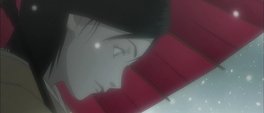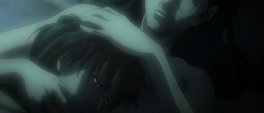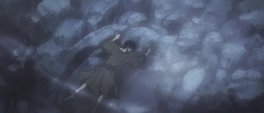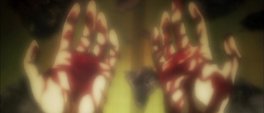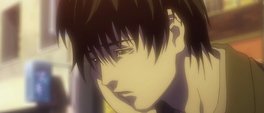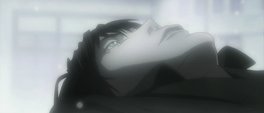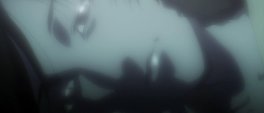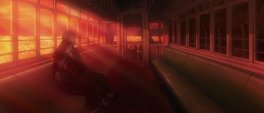Based upon well-known Japanese literature, no opening music and a simple perfunctory closing animation, Aoi Bungaku could barely be more art-house. It's an odd situation coming from a media that is still mostly marginalised, even in its country of origin: aiming for a further niche would seem counter-intuitive especially for something with such stunning production values.
At times it is breathlessly beautiful, judicious use of soft filters and colour grading means everything has an ephemeral reality to it - helped by a keen eye for details in the most fleeting of scenes. Combined with a story of childhood, loss, sex, suicide and emotion it's dangerously easy to fall in love with the series and be utterly enthralled by it. A live action introduction by Sakai Masato, notable drama actor, explains the aim of the series is to introduce viewers to well known stories, the first of which is "No Longer Human" by Dazai Osamu. At only twelve episodes long and six works to get through, the first story is the longest occupying four complete episodes and tells the life of the troubled Yozo Oba.
Born into a wealthy family and coddled while young, Yozo always felt disconnected from other people which leads to his wanton involvement with unsavoury characters and troubled events. The story is superbly told and although Yozo is a thoroughly pathetic creature, he is portrayed with pathos and empathy that can really only come from a strong literary source material. Character designs certainly show their lineage having been penned by Takeshi Obata; conversely direction shows no signs of Morio Asaka's previous works and is subtle and loaded with subtext. Bolstered with an all-star vocal cast, the first three episodes are absolutely spectacular and it is little wonder that the first story is being recut for theatrical release
The most disappointing aspect of the series is the sound design, expectations of engrossing background music and atmosphere building sound effects aren't met, instead a competent if underwhelming score is provided. Being spoiled by the aural delights of series such as Mushishi and Ghost Hound perhaps resulted in elevated anticipation beyond reasonable means. Nevertheless, when the only noticeable fault is a merely proficient soundtrack, one knows that the series is something particularly special.
Aoi Bungaku is a tour-de-force for almost everyone involved, in only three episodes a world is created that transcends the ordinary. If the five remaining stories have even a fraction of the talent on display with "No Longer Human" the series would still be a showpiece worthy of lengthy praise. It is difficult to overstate just how impressive the series is without descending into superlatives and hyperbole, needless to say expectancy for the remainder is high.
